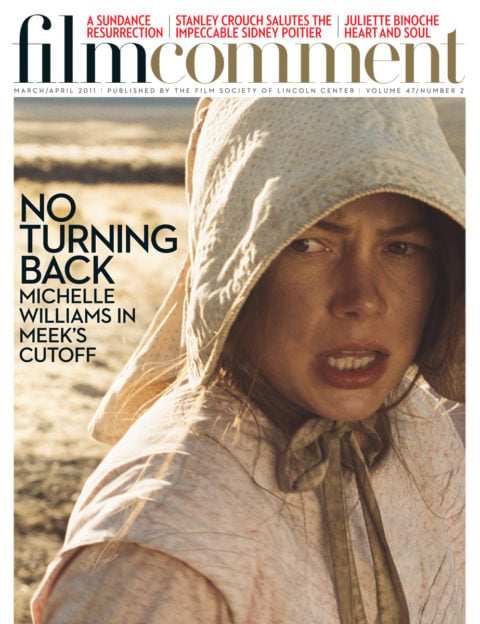
Joe Swanberg’s reputation in most of the critical community—as a hack and a pseudo-philosopher whose gaze is permanently affixed to his navel and to those of the friends who play versions of themselves in his films—unfortunately precedes him. That’s too bad, as Swanberg’s art encompasses much of what progressive-minded critics have praised in other filmmakers who make highly personal work, such as a staunch belief in collaboration and improvisation, and a flexible view of the boundaries between art and life.
Swanberg’s last feature, Alexander the Last (09), was his most formally sophisticated effort to date. With 2011 purported to hold at least another two Swanberg joints in reserve, it’s easy to see Uncle Kent as both a transitional work and an opportunity to play around with new techniques, unearth old thematic concerns, and continue to develop his compositional touch, which revealed itself to be quite formidable in his camerawork on Kentucker Audley’s 2010 film Open Five.
Uncle Kent’s protagonist is a Los Angeles-based animator, played with affecting self-deprecation by former SpongeBob SquarePants scribe Kent Osborne—he of the memorable full-frontal at the end of Swanberg’s best-known film, Hannah Takes the Stairs (07). Kent has just turned 40 and seeks relief from his loneliness in ripping his bong at all hours of the day and sketching portraits of strangers he encounters on the Internet. A pretty woman he met on Chatroulette, Kate (Jennifer Prediger, whose cute if grating caprice recalls Greta Gerwig’s Hannah), improbably comes to stay with him for a weekend. They engage in a game of psychosexual cat-and-mouse, candidly discussing their masturbation techniques and orchestrating a threesome with a woman they find on Craigslist, their relationship stuck in the gray area between friendship and friendship-with-benefits. When the ménage à trois does happen, it’s excruciatingly uncomfortable, largely due to its bumbling awkwardness—The Mother and the Whore, this ain’t.

But Swanberg isn’t just interested in the power dynamics of desire in the age of Facebook. His recurring contemplation of the increased centrality of technology within our social lives is interrogated through the various devices Kent uses daily to fabricate a sense of connection with others and with his environment. Segments from Kent’s Flip camera recordings facilitate a skipping back and forth between video formats that recalls, bizarrely enough, the first section of Godard’s Film Socialisme. The shakiness of Kent’s footage contrasts strikingly with Swanberg’s digital lensing, which itself alternates between tremulous handheld and tripod-assisted compositions that prove his work on Open Five was no fluke. Uncle Kent may not knock the viewer out with visual splendor, but it’s still fascinating to look at.
Whether Swanberg has indeed reached a new stage in his artistic development will only become evident when the rest of his 2011 output is released, but this much is clear: Uncle Kent is much too intriguing to be discarded as merely twee, softcore hackwork.








